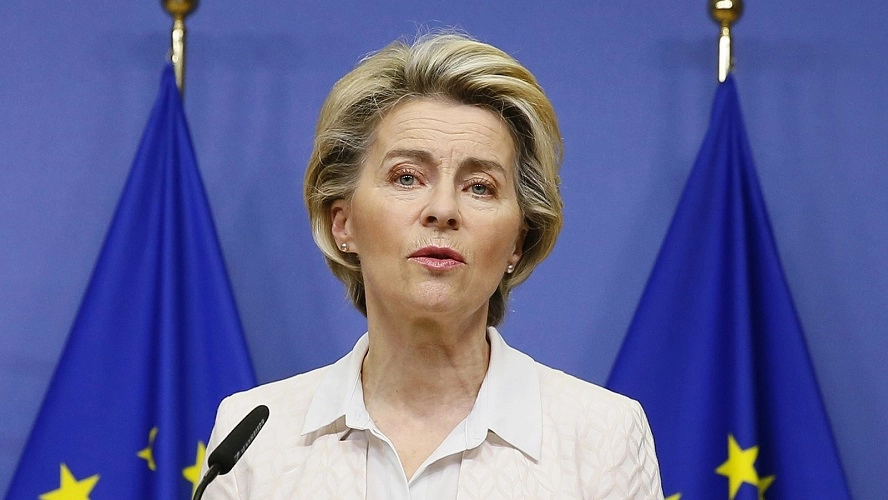Eight members from the automotive value chain, including representatives from labor unions and employers, wrote a letter addressed to the President of the European Commission, Ursula von der Leyen.
This “urgent call” requests to stimulate the transformation of the national automotive industry and enhance its competitiveness, taking into account the eMobility sector.
The signatories emphasized their commitment to decarbonizing transportation and stressed that inaction by lawmakers will undermine the transformation and competitiveness of the European automotive industry.
Additionally, it will jeopardize employment in an industry that generates more than 13 million jobs in the European Union (EU).
Among the signatories are Sigrid de Vries, Director General of the European Automobile Manufacturers’ Association (ACEA); Antonio Perlot, Secretary General at the European Association of Motorcycle Manufacturers (ACEM); Bernard Lycke, Director General of the European Council for Motor Trades and Repairs (CECRA).
Also, Delphine Rudelli, Director General at Ceemet – European Tech & Industry Employers; Benjamin Krieger, Secretary General at the European Association of Automotive Suppliers (CLEPA); Adam McCarty, Secretary General at the European Tyre and Rubber Manufacturers’ Association (ETRMA).
René Schroeder, Executive Director at the Association of European Automotive and Industrial Battery Manufacturers (EUROBAT), and Judith Kirton-Darling and Isabelle Barthes, Joint Acting General Secretaries of IndustriALL Europe, also signed the letter.
Requests from the Automotive Sector
The letter states that “the European Commission must urgently establish a robust framework to manage these challenges and prioritize six key actions.“
The first action consists of developing a robust strategy that ensures a level playing field (both outside and within the EU), provides a stable investment environment, and fosters a competitive automotive industry.
This includes a competitive regulatory framework, the availability and simplicity of financial resources to stimulate investment in green and innovative technologies and production methods, with guarantees to ensure the retention and creation of quality jobs.
A crucial pillar for this strategy will be to secure reliable energy sources at competitive prices, which will reduce costs for citizens and businesses.
The second action aims to expand a European zero-emission market and battery value chain, reducing dependence on other countries.
In addition to the Critical Raw Materials and Net-Zero Industry Acts, the EU needs a strong response to the US Inflation Reduction Act (IRA) to boost investment in the European battery value chain and other components crucial to improving the environmental performance of vehicles.
This support should be complemented with a robust hydrogen strategy, both for industrial and mobility applications.
The third action calls for ensuring a stable and coherent regulatory environment for the sector.
The current fragmentation of the EU regulatory framework for the sector creates a context of uncertainty that undermines investment and weakens market demand.
The EU should complete the Single Market (including the recharging and refuelling infrastructure, as well as electricity) and remove barriers for cross-border trade.
The Commission should make proposals to simplify and better articulate regulations, reaffirming the importance of technological neutrality that supports innovation and competition.
The fourth action involves enhancing the skills agenda and the just transition framework.
The EU must lead a transformation roadmap, especially for regions reliant on the automotive sector.
The Commission should also do more to boost digital skills for a high-tech auto industry.
The fifth action emphasizes that the EU should ensure affordable and sustainable mobility for all while the industry intensifies its efforts to produce affordable vehicles and services for everyone.
Coordinated incentives should support green investment and vehicle acquisition in both new and second-hand markets.
The sixth action is about ensuring a fair global playing field.
In this regard, the signatories indicate that two- and three-wheeler vehicles provide good examples of changes in global trade relationships.
However, they also argue that state aid policies in third countries put European manufacturing competitiveness at risk.
Diversifying the supply of raw materials should be a central pillar of the EU’s trade strategy, including the ratification of existing trade agreements and the negotiation of raw material partnerships.








